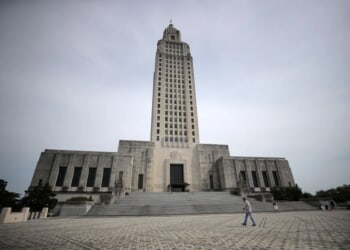The Conservatives have officially launched their campaign for the truncated local elections on May 1st. The campaign theme of value for money is hardly original but it is the right message to focus on. Birmingham does not go to the polls but its profligate socialist Council offers a warning to the rest of us. The Government has allowed it to increase Council Tax by 7.49 per cent this year – above the usual threshold of 4.99 per cent where consent via a referendum would be required. Are the Brummies getting especially marvellous services for all that extra spending? A report on the BBC would suggest not:
“A mobile refuse collection service had to be called off early in Birmingham after it was swarmed by people desperate to dispose of their rubbish. All-out strikes by refuse workers since last week have seen bin bags pile up on streets across the city and reports of an increase in rats and other vermin.
“To help tackle that, a bin lorry was put on to collect some of the rubbish. However, word quickly spread and the vehicle was approached by so many people as it attempted to travel along Anderton Park Road, in Moseley, that a local councillor concerned about safety called police.”
Even when the strikes stop the rubbish will only be emptied fortnightly and the fly-tipping is ignored.
So often we see councils throwing money around ineffectively. They often boast about how much they are spending on potholes (sometimes with endless temporary bodge-ups.) Yet, as The Sun reported last year, the JCB Pothole Pro cuts the cost of fixing a pothole from £63 to £30 – with proper repairs that last. Most councils don’t bother to use this technology. Buckinghamshire, where the campaign was launched yesterday, is among those that do.
These elections will be tough for the Conservatives – even for councils that can point to success stories. As I have noted before, they were last contested in 2021 when the Conservatives were well ahead. That was the era of Peak Boris. It was the same day as the Hartlepool by-election – where the Conservatives gained the seat from Labour. Getting a worse result than Jeremy Corbyn prompted Sir Keir Starmer to consider resigning as Labour leader. This time the local elections may also be upstaged by a Parliamentary by-election – the Runcorn and Helsby contest is likely to be the same day and polling from Lord Ashcroft suggests Reform UK are favourites to take the seat from Labour.
There has also been some polling for the local elections. Some of the top targets for Reform UK – such as Thurrock – have seen the contests postponed. However, the polling by Electoral Calculus (using the “multi-level regression and post-stratification” method so that with a large sample it can give a local breakdown) still points to the insurgent party not merely gaining councillors, but councils. It shows Reform UK winning Derbyshire, Doncaster, Durham and Kent. In other councils, they are projected to be the largest single party albeit without an overall majority – Lancashire, Northumberland, Nottinghamshire and Staffordshire.
If the polling is translated into actual results then the narrative that Reform UK is simply a problem for the Conservatives will be shattered. Runcorn and Helsby is supposedly a safe Labour seat. Doncaster and Durham are traditionally solid Labour areas. If the Conservatives make losses to Reform UK they can point out the comparison is from a high base. If Labour make losses they will be doing even worse than from a very bad set of results in 2021. They only have six out of 81 councillors in Kent – the polling has that halving to three. They only have 15 councillors out of 64 in Derbyshire – the polling has the tally falling to 12.
Naturally, healthy local democracy involves some variation in the trend from one county to another. It is disappointing if the only interest is extrapolating the figures to measure national fortunes. The problem is that sometimes it makes little odds which Party is running the Council. Typically the Council Tax is being increased by the maximum possible, overmanning tolerated, wokeness no merely indulged but mandated.
Imagine if a clone of Elon Musk or Javier Milei became a council leader or directly elected Mayor. For instance, what if the chainsaw came to Doncaster? Milei achieved a 30 per cent reduction in public spending in Argentina last year. Imagine if there was anything approaching that level of ambition. Remember that nationally most local authority revenue comes from central Government grants of various kinds – only around a third is funded by Council Tax. In Doncaster, last year the Council Tax raised £136 million. Total spending was £901 million. So a saving of 15 per cent – half what Milei achieved would allow Council Tax in Doncaster to be abolished. There is £19.8 million that goes on interest payments for the Council’s £371 million debt mountain. The Council owns 366 acres which it admits is not in operational use. Why not release it for development to provide a few thousand new homes? Planning permission could be conditional on them being beautiful and including new green spaces to replace redundant eyesores. It has 729 empty garages which could mostly be replaced with cottages. Apart from using the proceeds to clear the Council’s debt, there could also be a requirement to include some social housing. That could save another £4 million a year on temporary accommodation.
The £26 million spent on Public Health is largely wasted on bureaucracy, research projects, and ineffective “nanny state” campaigns to take more exercise or give up smoking. The Director, on a salary of £133,000, is most concerned with investigating inequality. If all this spending allocated to provide practical specialist help for services such as adult social care and homelessness that would keep within the ring-fenced rules of the grant but ease the Council Tax burden.
Then there is the cost of children’s home placements. When I investigated this last year, I found that astonishingly, Doncaster Council was spending £678,000 annually on just one child. The Council spends £4.3 million on residential care for children. Often these children are in mainstream schooling which is an indication that fostering or adoption would be viable.
Of course, one could go on. There is the loose change of its 13 communications officers, the diversity officers, the 46 (!) Council funded trade union posts, spending on conferences, spending on consultants. A million for this. A million for that. Taxis to school. Net zero zealotry… Perhaps another hundred million could be saved and Business Rates abolished in Doncaster too – which would certainly boost the local economy.
I’m not saying Doncaster is any better or any worse than other councils. I offer it as an example. Maybe if Reform UK seize power there they will bring about transformation on the sort of scale I describe. There would be nothing to stop them or anyone else from doing so. But it seems unlikely. Will any of these Reform UK councils cut the Council Tax at all, let alone abolish it? Will they show the rigour of staying within the law but resisting gold-plating absurdities? Will they govern in the no-nonsense spirit of Rupert Lowe or the expediency of that pinko sell-out Nigel Farage? Winning is the easy bit. Making a difference is harder. I fear that the Reform UK councils being submerged into municipal groupthink and bureaucratic inertia is the more plausible scenario.





![Trump's Admin Guts Another ‘Rogue Government Agency with Zero Accountability’ [WATCH]](https://www.right2024.com/wp-content/uploads/2025/03/Trumps-Admin-Guts-Another-‘Rogue-Government-Agency-with-Zero-Accountability-350x250.jpg)


![‘We All Owe Him (Elon) a Huge Debt of Gratitude’ [WATCH]](https://www.right2024.com/wp-content/uploads/2025/03/‘We-All-Owe-Him-Elon-a-Huge-Debt-of-Gratitude-350x250.jpg)

![NCAA Champ Salutes President Trump After ‘BIGGEST UPSET IN COLLEGE WRESTLING HISTORY’ [WATCH]](https://www.right2024.com/wp-content/uploads/2025/03/NCAA-Champ-Salutes-President-Trump-After-‘BIGGEST-UPSET-IN-COLLEGE-350x250.jpg)






